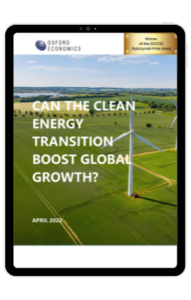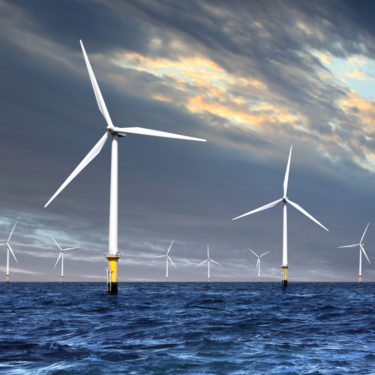Can the clean energy transition boost global growth?

“Without immediate and deep emissions reductions across all sectors, limiting global warming to 1.5°C [in line with the Paris Agreement] is beyond reach.” That was the unequivocal conclusion of the most recent report from the Intergovernmental Panel on Climate Change (IPCC 2020).
Reducing emissions will require a transformation, not only in the energy sector but also in transport, buildings, and agriculture. This will involve a substantial reduction in fossil fuel use, widespread electrification, improved energy efficiency, and the use of alternative fuels (such as hydrogen).
However, the macroeconomics of this clean energy transition is highly uncertain. Advocates of green development have argued the investment needed for the clean energy transition will boost jobs and growth, while other studies point to the risks of a negative supply shock if the transition results in an accelerated obsolescence of the existing capital stock and a significant reallocation of resources (Pisani-Ferry, 2021). In our analysis, the crux of this argument comes down to what is assumed in terms of innovation and technical progress – since the sizeable and persistent investment needed for the clean energy transition will most likely result in higher inflation unless matched by a corresponding shift in aggregate supply.
This article examines the macroeconomics of the clean energy transition by simulating two stringent mitigation scenarios, using a global structural model. In both scenarios, we use carbon prices to create an incentive to move away from fossil fuels and support the transition to net zero emissions by 2050 via a significant and persistent boost to global investment. However, in the first scenario we assume investment spending is largely financed by carbon tax revenues, while in the second, we relax this financing constraint and allow the increase in investment to stimulate innovation, leading to faster technological progress.
Tags:
Related Services

How New Sustainability Efforts Can Boost Efficiency and Profit
Sustainability efforts are a business necessity, but they still face headwinds, according to a new Oxford Economics and SAP study.
Find Out More
Global: Hydrogen’s role in the transition to clean energy
A key component on the road to global net-zero is reducing the emissions of those hard-to-decarbonise sectors; chiefly, in heavy industry and long-distance transport, which require either high combustion temperatures or high energy content.
Find Out More
What governments in Asia can do to mitigate climate-driven food price spikes
Over the past decade, climate change has made Southeast Asia’s weather hotter and more unpredictable than ever before. Mean temperatures are around 3 degrees Celsius higher today than they were in the 1950-1980 period, and the range of temperatures has widened by around 2 degrees. Rainfall has trended downward, but with increased volatility. And more instability is on the way—the Intergovernmental Panel on Climate Change warns that weather extremes will become far more frequent as global warming progresses.
Find Out More
The impact of Airbus on the UK economy
Airbus supported a £5.6 billion contribution to UK GDP, supported 86,400 jobs across the country, and raised more than £1.4 billion in tax revenues in 2020, according to research by Oxford Economics.
Find Out More